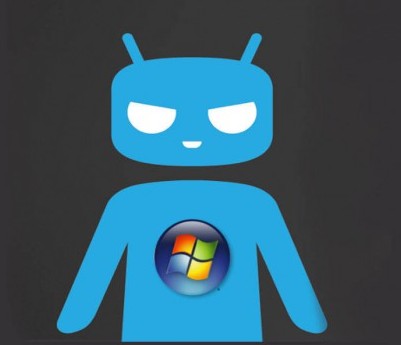

Image credit: Linux Veda
THIS topic was covered here before (to some degree), but the severity could not be emphasised strongly enough because Microsoft is in the "extend" phase of its infamous "embrace, extend, extinguish" (EEE) manoeuvre and this time it targets Android.
"Many developers love Google or at least accept it much more openly than they accept Apple for example."A much better article has just come from Eric Brown, who explained Cyanogen's connection to Microsoft. He correctly noted that Samsung's Microsoft 'deal' came just one "month after Microsoft and Samsung settled a longstanding royalties lawsuit" (there is a connection there).
"An acquisition," he explains, "also remains a possibility. Like Microsoft, most of Cyanogen's employees are based in Seattle." It would not be shocking if some of the staff is former Microsoft staff trying to disrupt Google.
Cyanogen and Microsoft are "close to finalizing a wide-ranging partnership," he added, citing seemingly reliable sources.
Brown's article, "Are Cyanogen and Microsoft Ready to Stick it to Google?", is a good and comprehensive roundup of many things we have covered. It says: "The rumor of a Cyanogen partnership with Microsoft emerged in January in a Wall Street Journal report that Microsoft would be a minority investor in the fast growing software firm. The Forbes story reports that the rumored $80 million funding round has just been completed, but did not include Microsoft. An investment may well be part of the bundling deal expected later this year, however."
Brown also explains that "many of CyanogenMod's 50 million users purchase Google Apps, even if they've just flashed it from their Android phone in order to load CyanogenMod. The open source Android clone has gained its huge following, including some 9,000 open source developer volunteers, due to its up-to-date, open source, bloatware-free Android code. Also popular are its extensive customization opportunities, better battery life, and often faster performance. The project was launched in 2009 by hacker extraordinaire Steve Kondik, who continues on as Cyanogen's CTO.
"Mobile device vendors who pay big money to Google to pre-install the popular Google Apps have long chafed at the relationship. Google has reportedly used the apps as leverage to ensure greater control over Android or sell other Google services. Samsung's backing of the Linux-based Tizen platform was seen as a response to Google's app domination, although the company now appears to have slowed its push for Tizen on phones even as it continues to deploy it elsewhere."
"Bribes and extortion don't make Microsoft 'nice'; they make it more evil (and arguably more dangerous) than ever before."Cyanogen as a Microsoft proxy does not require unsound hypotheses. It's not far-fetched at all given all the evidence, including patent extortion against Samsung and OEM partners like Dell (now directly connected to Microsoft). "A month after Microsoft and Samsung settled a longstanding royalties lawsuit," Brown explains, "the companies expanded a partnership this week that was announced at Mobile World Congress. In addition to pre-installing Microsoft OneNote, OneDrive, and Skype on Samsung's new Galaxy 6 phones, Samsung says it will soon bundle those apps, along with Android-optimized Office apps (Microsoft Word, Excel, and PowerPoint), on selected Samsung Android tablets. Microsoft also announced it has signed similar deals with Dell, as well as 10 other lesser known hardware partners."
Those other hardware partners were always -- as far as we can tell -- subjected to patent extortion from Microsoft. Brown concludes: "It's unclear whether that bullet may someday ride in on a deal with Microsoft that goes beyond apps to include a version of Windows Phone based on Cyanogen OS. An acquisition also remains a possibility. Like Microsoft, most of Cyanogen's employees are based in Seattle."
Brown does not omit context such as Microsoft's hatred of GNU/Linux. He additionally notes: "The ironies are thick here, considering that for many years Microsoft strong-armed PC vendors into pre-installing Office, or pressured them into loading Windows on netbooks instead of Linux. Now, after Google ruined its plans to establish Windows Phone as the rival mobile platform to Apple's iOS, Microsoft is playing the underdog game while increasingly cozying up to open source projects, including the Raspberry Pi Foundation and perhaps Cyanogen."
We have already chastised the Raspberry Pi Foundation over this. Its response to us was sarcastic, not factual, which does make one wonder if Microsoft is indeed paying the Raspberry Pi Foundation a lot of money to do this. Bribes and extortion don't make Microsoft 'nice'; they make it more evil (and arguably more dangerous) than ever before. ⬆